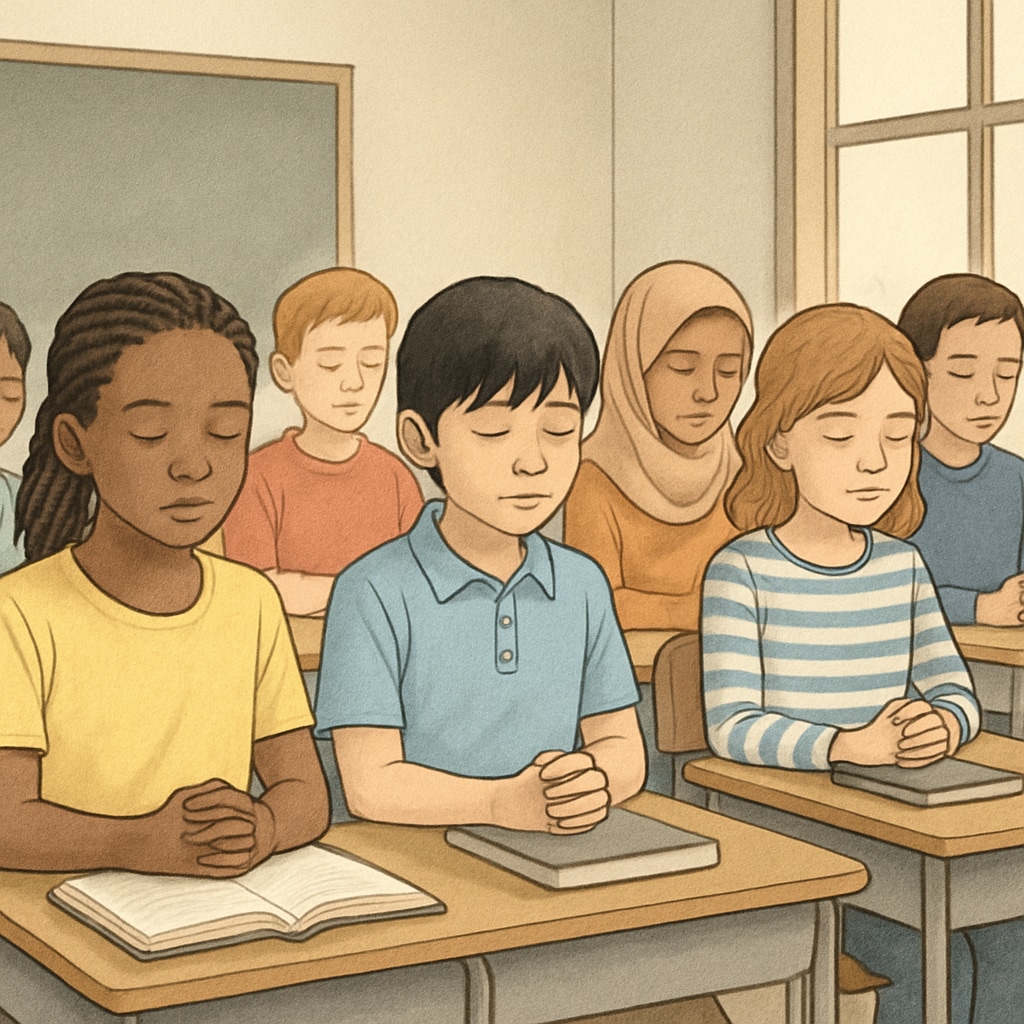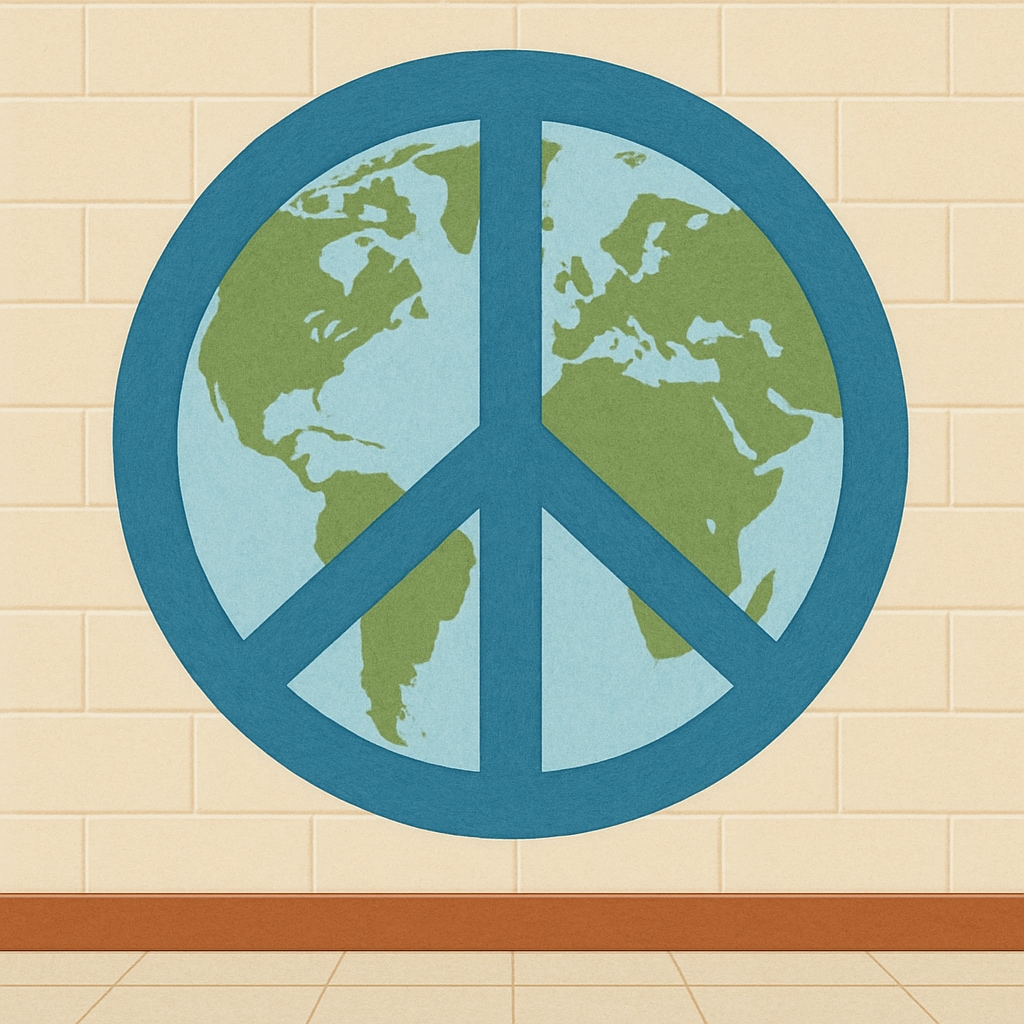The controversy surrounding the generalization of a Gaza moment of silence into a commemoration for “global war victims” has sparked a heated debate about the role of schools in addressing current events. This “generalized approach” raises important questions about how educational institutions navigate politically sensitive topics while maintaining their responsibility to foster awareness and critical thinking about humanitarian crises. The issue, which touches on themes of conflict, genocide, and global solidarity, brings to light the fine line between education and politics.
The Original Intent: Honoring Gaza and Localizing Awareness
The initial proposal for a moment of silence specifically for Gaza stemmed from the ongoing humanitarian crisis in the region. The intent was to provide students with a moment to reflect on the widespread suffering, including the loss of innocent lives and the destruction of communities. By focusing on Gaza, schools had the opportunity to educate students about the historical and socio-political context of the conflict, fostering empathy and a deeper understanding of global issues.
However, this targeted approach was met with resistance in some communities. Critics argued that singling out Gaza might appear politically biased or neglect other conflicts worldwide. In response, some schools opted to broaden the scope, transforming the event into a more neutral commemoration for “global war victims.” While this approach aimed to avoid controversy, it inadvertently diluted the original message.

The Challenge of Generalization: Diluting the Message
Adopting a generalized stance on global war victims can be seen as a way to sidestep political sensitivities. However, this approach comes with significant drawbacks. By avoiding the specific context of Gaza, schools risk oversimplifying complex issues and denying students the opportunity to engage critically with current events. Such a generalized approach may inadvertently perpetuate a culture of detachment, where individuals become desensitized to the unique suffering of specific communities.
Moreover, the decision to generalize raises questions about the role of education in addressing systemic issues like genocide and prolonged conflicts. Should schools strive to remain neutral, or should they take a stand on pressing humanitarian crises? This dilemma underscores the tension between fostering critical thinking and maintaining an inclusive, non-polarizing environment.

Education’s Responsibility in Navigating Humanitarian Crises
At their core, schools are not just institutions for academic instruction but also spaces for shaping informed and compassionate citizens. Avoiding direct engagement with specific crises like Gaza might seem like a neutral choice, but it risks undermining the educational mission of fostering global awareness and empathy. Students should be encouraged to explore the complexities of international conflicts, understand the underlying causes, and engage in meaningful discussions about potential solutions.
To achieve this balance, educational institutions must adopt a principled approach when addressing current events:
- Contextual Education: Provide students with the historical, cultural, and political context of specific crises to enhance their understanding.
- Fostering Empathy: Encourage students to connect emotionally with the realities faced by affected communities through storytelling, art, and literature.
- Encouraging Dialogue: Create safe spaces for students to discuss and debate diverse perspectives on global issues.
- Balancing Neutrality and Advocacy: While maintaining inclusivity, schools should not shy away from addressing critical humanitarian crises.
Conclusion: Courage and Responsibility in Education
The controversy over the Gaza moment of silence highlights a broader challenge for educational institutions: how to navigate politically charged topics while fulfilling their responsibility to educate and inspire action. Generalizing the event to honor global war victims may have been a well-intentioned compromise, but it also underscores the importance of specificity in fostering awareness and empathy.
Schools must embrace their role as catalysts for change, guiding students to critically engage with the world around them. By addressing humanitarian crises with courage and authenticity, educational institutions can empower the next generation to become informed, compassionate, and active global citizens.
Learn more about the history of Gaza on Britannica. For further reading on global education policies, visit Education Policy on Wikipedia.
Readability guidance: This article uses short paragraphs, transitions, and actionable recommendations to maintain clarity and engagement. Lists are included to summarize key points, and care has been taken to avoid excessive passive voice and long sentences.


